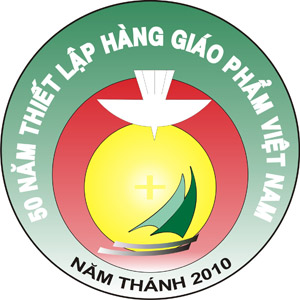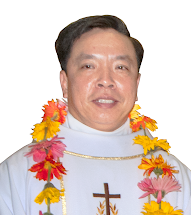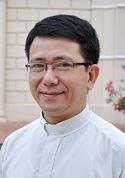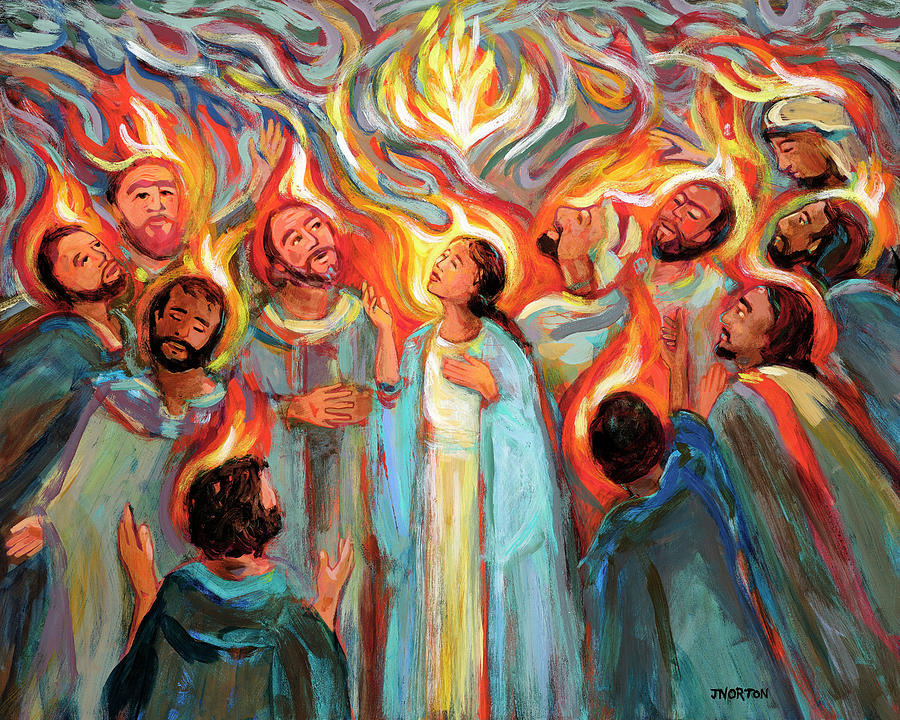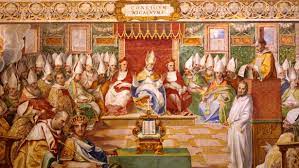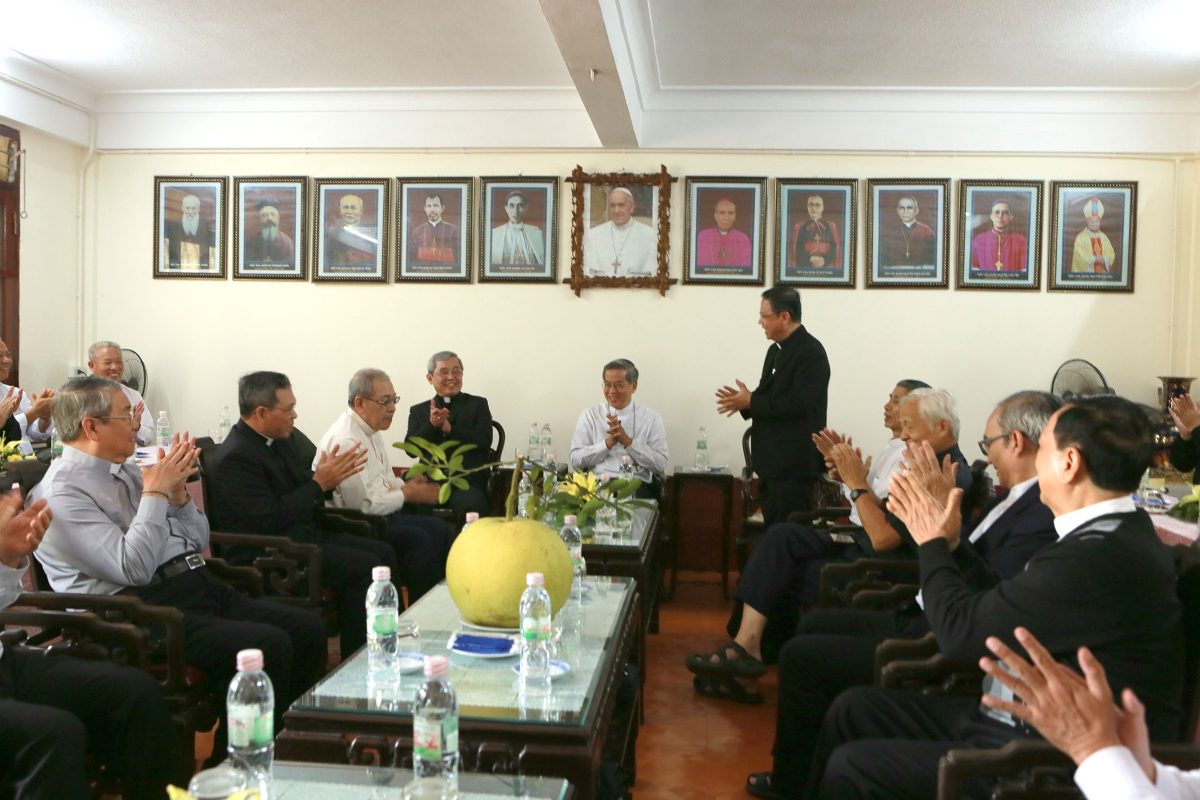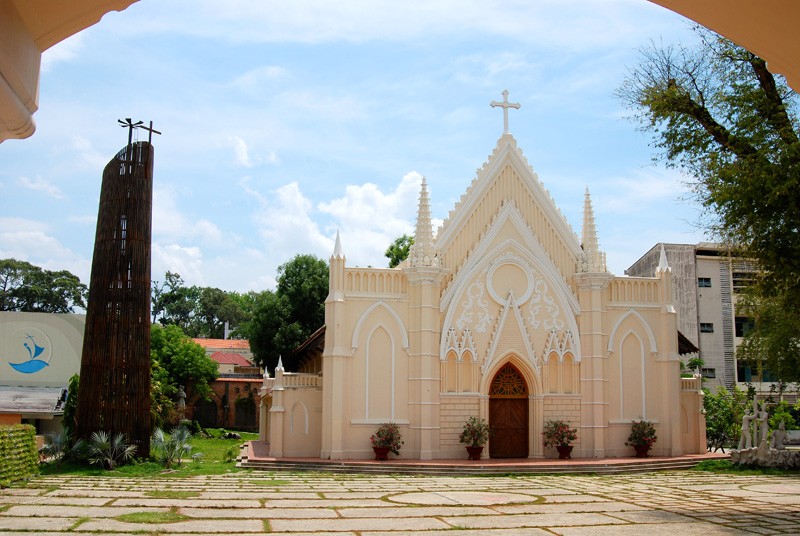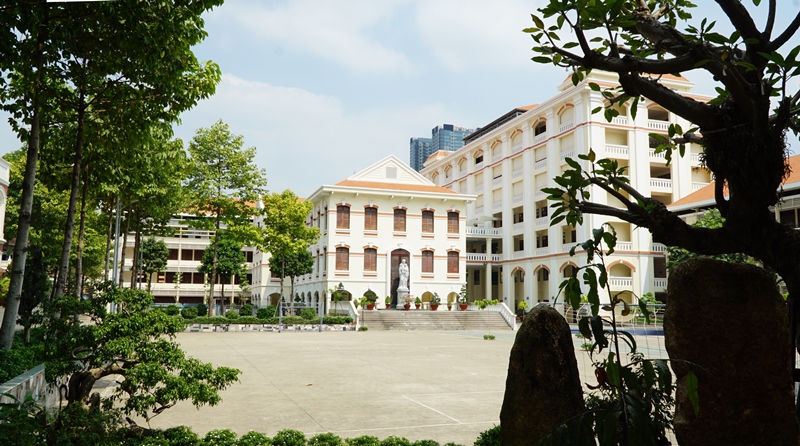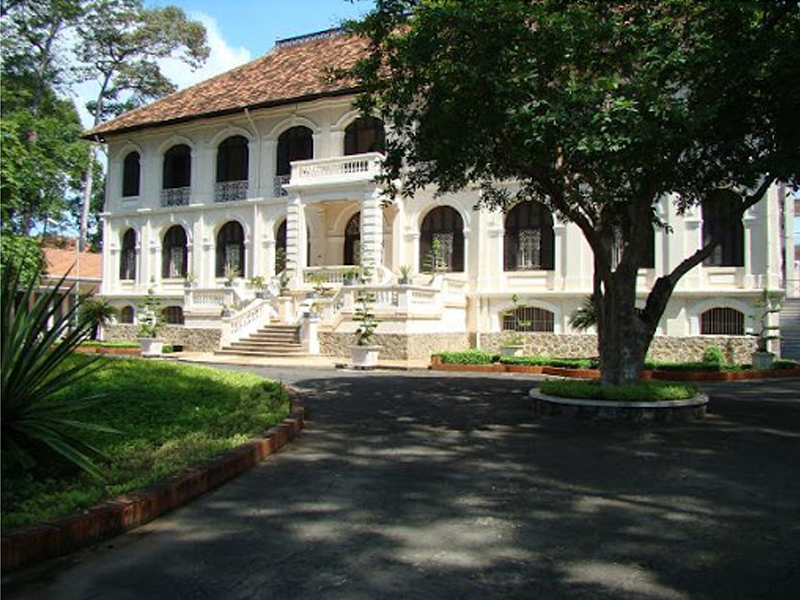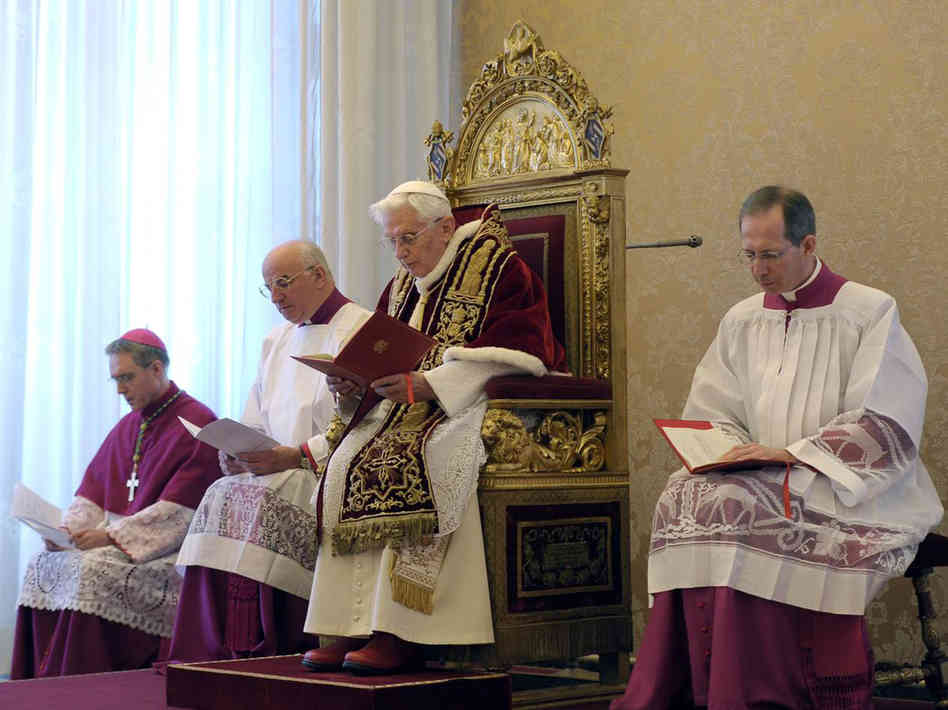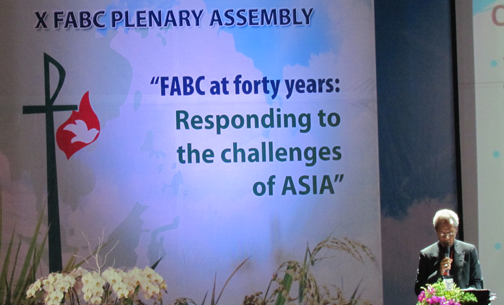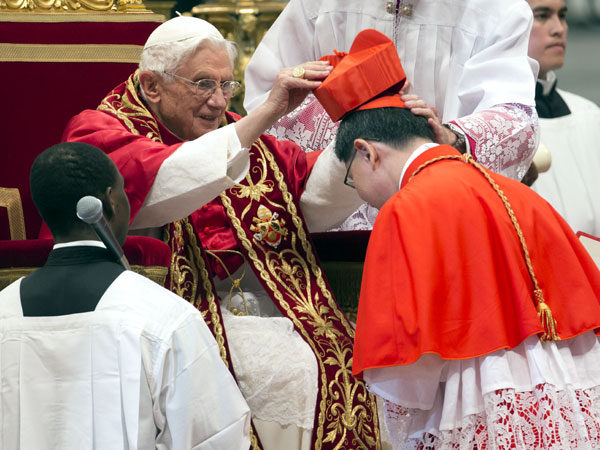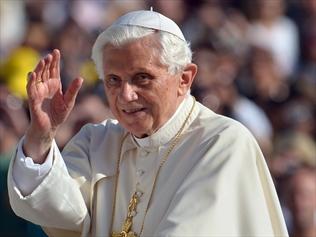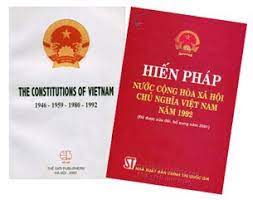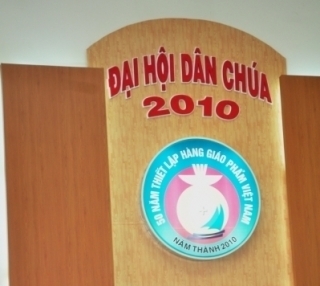Pastoral Letter 2011 of CBCV: Together cultivating a civilization of love and life
THE CATHOLIC BISHOPS' CONFERENCE OF VIET NAM
PASTORAL LETTER
Together cultivating a civilization of love and life
To : The Vietnamese Community of God's People
Introduction
1.Celebrating the Jubilee in commemoration of the 350th anniversary of establishing the first two apostolic vicariates, Dang Trong and Dang Ngoai, the 50th anniversary of establishing the Catholic Hierarchy, the Catholic Church in Vietnam gives thanks to God and expresses her gratitude towards ancestors. At the same time she tries to deepen and foster her faith, and rekindle her enthusiasm for evangelizationA279; [1]. In this setting, on the feast of the Vietnamese Martyrs, November 24, 2009, the Church in Vietnam solemnly inaugurated the Jubilee in So Kien, Archdiocese of Hanoi. After one year of preparation, the Congress of God's People was held at the PastoralCenter, Archdiocese of Ho Chi Minh City, from 21 to 25, November 2010. Finally, on January 06, 2011, the Closing of the Jubilee was solemnly celebrated at the Pilgrimage Marian Center of La Vang, Archdiocese of Hue.
2.To foster the results of the Jubilee, the Catholic Bishops' Conference of Vietnam sends this Pastoral Letter to all Vietnamese Catholics. Resulting from reflections, discussions, and prayers of the whole Vietnamese community of God's People, at home and oversea, in communion with pastors, this letter offers an orientation for the life and activities of the Church in the current situation. All is to serve God's Kingdom, the kingdom of truth and life and justice and love and peace [2].
3. In light of the Gospel, this letter will firstly present a sketche of the actual situation of the country where Vietnamese Catholics are living and exercising their mission. Chapter II will offer a reflection on how to live and express the mystery of the Church in this setting after God's call. Chapter III will focus on the communion in the Church as God's household. Chapter IV will deal with essential aspects of the Church's mission in Vietnam today.
Chapter I
ACTUAL SITUATION OF THE VIETNAMESE SOCIETY IN LIGHT OF FAITH
“You know how to interpret the appearance of earth and sky, but why do you not know how to interpret the present time?” (Lk 12:56)
4.Called to seek after the will of God through the signs of times, the Church in Vietnam tries to listen, reflect, and discern social realities in light of the Gospel. Currently Vietnam is entering the process of globalization, concretely by participating in regional and international organizations such as ASEAN and WTO. By attracting investments from domestic and foreign companies with their advanced technologies, the government creates more jobs for the people and sets the country on the road of development. People have the opportunity to approach the multifaceted information and the products of modern science and technology which help them form a new style of life and work. Vietnam, nevertheless, has to face with so many difficulties due to the immature preparation for the globalization process. Inflation, corruption, insecure and capricious management of national resources… make the life of the people more difficult. The gap between the rich and the poor is more and more widening. Many people not yet have a living standard that is worthy of human dignity, not only in the countryside but also in big cities. The problem thus is not merely economic but also a social and ethical issue.
5.This economic phenomenon leads to many changes in social life. Activities in the traditional villages are replaced by the urban lifestyle. The exodus to big cities in searching for jobs causes the imbalance of population density in the countryside and the city. Especially in big cities, the ever-growing population, coupled with the poor management and urban development policy, has caused negative impacts on the life of the people : environmental pollution, poor transportation and health care system, social evils such as drug addiction, abortion, prostitution, violence, etc… Youth in Vietnam are also active and willing to participate in social activities and interactions. They rapidly acquire advanced technologies to enrich their knowledge and serve the people. However, relativism and hedonism, the poor educational system, the manipulation of truth in communication means, unhealthy entertainment programs… have led many young people to a pragmatist mindset and lifestyle. They can do anything to make profit. The criteria of good and evil becomes relative, and thus it is a sign of the ruin of moral consciousness.
6.Market economy has relatively helped the country develop, but monopoly, immature policies and unsophisticated regulations, privileges for a minority of elites, corruption… create a way of life that is selfish, irresponsible, and disrespectful for the common good. Moreover, due to not being granted legal conditions, religious institutions and numerous men of good will cannot make a positive contribution to the edification of the country, particularly in education, health care, and charitable works.
7The cultural tradition of Vietnam always highlights the virtues such as family ties and relations, mutual help and harmony, respect for teachers and religions… These values, however, are seriously threatened by materialism and hedonism, narrow tribalism, lies and deceit, violence… What is of extreme danger is the quality of education. Education has the goal of forming honest and responsible human persons, empowering critical knowledge and creative thinking. In reality, the educational situation in Vietnam is put into question, a number of teachers cannot display their authentic vocations, and educational environment is affected by diseases such as commercialization and formalism.
8.Inherited from Asian religious tradition, expressed by various forms of religiosity, Vietnamese people spontaneously look up to “Heaven” (personalized) and venerate their ancestors. It is this belief that lays the foundation for their moral lives : respect for life, having good behavior and living in harmony with everybody. However, their religious feelings have a sentimentalist inclination, which limits religion in a number of cultual and moral practices. This inclination can lead people to a kind of religious relativization, and cause difficulties for the presentation and acceptance of the revealed truths of Christianity. Moreover, not being based on reason, these religious feelings are easily vacillated by materialism and hedonism.
9.The above analysis shows a close inter-action of economic, cultural, social, and religious elements in the life of the people. On the one hand, the current development has caused a great impact on the life of faith and moral. On the other hand, the integral development of human beings and the stable development of society are necessarily based on moral and religious values.
It really is a great challenge for the life and mission of the Church. How can we fulfill Christ’ mission of love and service in the midst of an ever-changing society? How can we accomplish the mandate of proclaiming the Gospel for the great majority of Vietnamese people who do not know Jesus the Lord? These challenges, however, become the opportunity for the Church “to examine, individually and collectively, how we are able to live better our faith and exercise more effectively the mission we have received from the Lord Jesus”. Under the guidance and action of the Holy Spirit, therefore, the Church in Vietnam needs to be convinced of and live faithfully her Catholic identity, foster communion, develop enthusiasm for evangelization, in order to fulfill Christ’ mission of love and service in our beloved country.
Chapter II
CHURCH AS MYSTERY
“I am the vine, you are the branches. Those who abide in me and I in them bear much fruit, because apart from me you can do nothing” (John 15:5)
10.God does not want to save people separately, but He gathers them into a nation, a community, a household, beyond the differences of language and race and culture. The Church is God’s People, who are chosen from eternity (Genesis 17:4-7), and become the sign and instrument of the loving God in the midst of human history; a history where light and darkness are mixed together, and waits with eager longing for the revealing of the children of God (see Rm. 8:19-22).
The Church really is God’s household in which God is the Father, Christ is the firstborn among innumerable brethren, and the Holy Spirit is the love of communion. The faithful are “citizens with the saints and also members of the household of God” (Eph 2:12). The image Church-Household is close to the mindset, experiences and thinking of the Vietnamese faithful in particular, and the Vietnamese people in general. This image expresses the Church as a community of love and union and solidarity, working together, rather than an institution equipped with heavy structures and regulations, and thus it is more easily understood and welcomed to the Vietnamese mentality. As a result, in order to integrate Christian theology into the Vietnamese society, we need to study, ponder, and present the Church as God’s household. On this theological foundation, pastors will set up pastoral plans for their parishes as “a family of families”, renew liturgical celebrations and prayers in the atmosphere of familial communion, as well as develop pastoral care for families.
11.Gathered by the Word of God, God’s People could be firmly built only on the foundation of God’s Word. Being listened with sincerity and endurance, the Word of God certainly will become a vivifying source, a guiding light, and a power that sustains our faith in all circumstances of life. The Church’s histoty in Vietnam shows that God’s Word, expressed and lived through traditional devotions and piety such as The Way of the Cross, Rosary, Annuntiation, Daily Prayers… have fed and sustained the faith lives of so many generations. These devotions are worthy of praise and need to be preserved as well as renewed and developed. At the same time, the Vietnamese faithful need to be more familiarized with the Word of God. Therefore the Church in Vietnam wants to encourage every household have its Bible, to be kept in a worthy place and used for reading and prayer. We also encourage the memorization of some passages which are particularly expressive of the Christian mysteries. All Church members, lay faithful, seminarians, religious, clergy, should daily read and meditate the Word of God, particularly in lectio divina.
Together with studying the Word of God, teaching and learning catechism are of primary importance in the life of the Church, especially in the present time which is filled with anti-Gospel ideologies. The Congress of God’s People suggests that the Church should present the common principles, guidelines and programs, also a common manual of catechism that is faithful to the Gospel and close to the culture of Vietnam. At the same time, the Word of God has to be the foundation on which formation programs for seminarians, religious, and catechists, are built.
12.The Church is the Body of Christ, in which He is the Head, the Principle of creation, redemption and sanctification. The Church is ransomed not with silver or gold, but with the precious blood of Christ (see 1Peter 1:18-19). Being gathered and united around the bishop at the Eucharistic banquet, the community of the faithful celebrate the Paschal Mystery, participate in the life of Christ and are transformed to be like Him. They become a community of fraternal communion and committed for mission. As such, the Eucharist must be the center, source and summit of the life and mission of the Church. Pastors, therefore, should concern themselves how to celebrate the Eucharist with reverence and devotion, particularly on Sunday, and guide the faithful participate in the Eucharistic celebration more knowingly, actively and fruitfully. They also should encourage and renew Eucharistic adoration which has been so honored in the tradition of the Catholic Church in Vietnam.
Being aware of our sinful conditions, the faithful should humbly make contrition and receive God’s forgiveness by virtue of the Sacrament of Reconciliation, to become worthy members in the body of Christ. The sacrament of reconciliation is the sacrament of the present by the grace of forgiveness, and the one of the future in terms of fostering communion among God’s children. We urge pastors to be more generous and available in helping the faithful receiving this sacrament.
14. In light of the Mystery of the Incarnation, the Church is a human and divine institution, in which human elements must be inclined and dependent on the divine. The Church is neither a spiritualist institution, nor a purely human organization, but in the Church, the visible is the sign and instrument of the invisible, and the invisible is incarnated in the visible. The Church, therefore, is called the sacrament of salvation. As such, hierarchy and the economy of sacraments belong to the very essence of the Church. Keeping it in mind, the faithful should overcome a kind of “religious formalism”, and at the same time, appreciate the true meaning of the so-called “religion of the heart” (dao tai tam). In the same vein, as a religious rather than political or economic reality, the Church never wants to replace the role of the government, but just wants to offer all her energy and ability to serve God and humans. At the same time, the Church is very interested in the promotion of human values in the life of the faithful and of the Vietnamese people, for it is an essential part of the integral development of humans and the stable development of society. This teaching must be the light that guides and affects all efforts of renewing our faith lives as well as our plans of serving evangelization, social justice, and education.
15.Also in light of the Mystery of the Incarnation, the Church realizes that inculturation and respect for indigeneous character are intrinsic requirements of our Christian faith. Upon receiving the Gospel, a local Church takes the responsibility of integrating the Gospel values into the culture of her own nation. This process does not eradicate but purifies and enriches the features of our national culture, by virtue of the Gospel values, particularly the value of the love “to the end” and “love of enemies”. In this process, the Church in Vietnam needs to carefully study the essential features of our national culture, to discern what are good and use them to express our faith, and simultaneously integrates the Gospel values in cultural activities, concretely in the Tet celebration and the events of funerals and marriages. In addition, the Church should encourage and accompany with Catholic artists and writers in their compositions. Moreover, formation program at all levels should be more concerned about inculturation.
16.Being the sacrament of God’s Kingdom where God may be all in all (see 1Cor 15:25-28; Eph 1:21-22), the Church is aware that only God can make His Kingdom fulfilled, and thus the Church relentlessly prays for the coming of the Kingdom (Lk 11:2; Mt 6:10). At the same time, the Church also is “God’s Kingdom in the state of a germ”, “God’s Kingdom in the process of growing”. As a result, the Church has a mission to do, that is the mission of love and service to humanity, guiding them to the true happiness. The disciples of Christ never despise human realities, they are willing to collaborate with everybody to make the world better, because everything that is good will not be destroyed but will be fulfilled in the eternal and universal Kingdom of God. There is no opposition between our waiting for God’s Kingdom and our effort to improve this world, and thus the faithful should overcome the conception of separating the faith from daily lives. In the same vein, we need to be alert with all forms of sin and bravely overcome secularism and unbelief for they depreciate human dignity. As such, as a prophet, the Church accompanies the world in sharing all the sorrows and happiness of humans, bravely denouncing the evil in all forms for the integral happiness of God’s children, and patiently rekindle in human hearts the hope in our faithful God.
17.In waiting for the Parousia with the aspiration of total union with God, the Church actually lives in communion with the heavenly Church and the deceased members. The Vietnamese faithful always look up to the Virgin Mary with filial piety, and have a special devotion to her. Through the ups and downs in history, the Church in Vietnam confidently invokes the help of Our Lady as well as the support of Saint Joseph and the intercession of the Vietnamese Martyrs. Our devotion to Mary and the saints, however, should be based on the Scriptures and a solid doctrine, avoiding expressions that are too sentimentalist. At the same time, Vietnamese Catholics need to assert their filial love to our ancestors in accordance with the teaching of the Church and the cultural tradition of the nation.
18.In the state of pilgrimage, the Church cannot avoid difficulties and trials, even persecutions. Instead of being suppressed by pessimism, hatred and fear, we are called to discover the gifts and benedictions of God : being conformed to Christ, sharing His Cup and Baptism (see Mk 10:38-39), and being purified to become His faithful spouse (see Eph 5:25-27; Rev 19:8). In fact, “Nor hardship, distress, persecution, famine… will be able to separate us from the love of God in Christ Jesus our Lord” (Rm 8:39). Additionally, the lived experiences of our Church in Vietnam gives witness to the evangelical truth : “Unless a grain of wheat falls into the earth and dies, it remains just a single grain; but if it dies, it bears much fruit” (John 12:24). Sanguis martyrorum, semens Christianorum (Tertulliano).
19.To sum up, we profess that the Church is the making of the Triune God. From Him, the Church is born; through Him, the Church acts; toward Him, the Church sets out. Only God can form the Church after His will. Through the spiritual journey in the Jubilee 2010, the Holy Spirit strengthens and renews our minds and hearts to live out the paschal mystery of Christ, to foster a profound communion in the Church, and to go forward to the new boundaries of mission.
Chapter III
COMMUNION IN GOD’S HOUSEHOLD
“That they may all be one, as you, Father, are in me and I am in you, may they also be in us, so that the world may believe that you have sent me” (John 17:21).
20.Jesus our Lord has established the community of disciples firstly to be with Him (see Mk 3:14), listen to Him (see Lk 10:39), and share His life (see John 1:39). In the Holy Spirit, we become one with Christ, and through Him, become one with God the Father. From there, we become one in the Church. The mystery of communion in the Holy Trinity truly is the source and model and end of ecclesial communion. According to the traditional teaching, koinonia means participating in the one Holy Spirit, communion in holy things (sancta) and among holy persons (sancti). As such, communion with God is the source and foundation and necessary condition of ecclesial communion. Without the communion with God, it is impossible to talk about communion in the Church. At the same time, visible communion in the one teaching of the apostles, the one sacramental celebration, and the one hierarchy, is the sign and instrument of the invisible communion with God.
21.Communion of love among the faithful is the fruit of the Holy Spirit (see Rm 14:17; Gal 5:22-23) and the visible sign of the communion with God, for “ubi caritas est Deus ibi est”. Catholic and apostolic faith compels the Church in Vietnam to be in communion with the universal Church, and to be united with the Holy Father, who is the presider of charity, the visible and lasting principle and foundation of the unity in the Church.
22.Being in communion with the universal Church, the Church in Vietnam also fosters and strengthens the communion with our sister Churches, especially in Asia. Solidarity with our sister Churches in Asia not only displays the unity Christ has devotedly prayed “That they may all be one” (John 17:21), but also enriches our living experiences and our faith expressions by virtue of theological, pastoral, and spiritual exchanges. The Church in Vietnam thus should continue to cultivate this communion and solidarity by various ways.
23.Authentic and profound communion in the Church needs to be displayed inside each diocese as well as among dioceses. By living the unity of love among members in the Church as in a family, Catholic communities become the sign and school of communion. The relationship among bishops, priests, religious, and the lay faithful is based on the equal dignity and the co-responsibility of all the members in the Body of Christ, by virtue of faith, hope, and love. The Congress of God’s People, therefore, urges the Church in Vietnam to strengthen the communion and participation in the Church at all levels, and to facilitate all Church members to take part in the life and mission of the Church. In reality, this orientation is not yet done equally and concretely at the parochial or diocesan level. Building up a Church of communion and participation, therefore, must be of primary importance for the Church in Vietnam in the years to come.
24.Building a Church of communion and participation does not lessen the leadership of pastors and hierarchy. The love and respect of the Vietnamese faithful for pastors come from their senses of faith. They are united with their diocesan bishops with obedience for they are convinced that a bishop is “the visible principle and foundation of the unity in the local Church”. At the same time, facing with modern ideologies that can endanger the life of faith and moral, God’s People in Vietnam desire that bishops, as defenders of faith and moral, should have concrete and immediate directions for the community.
25.The communion in the Church also is expressed by the fact that the clergy shares the responsibility with their bishop, such as accomplishing given duties and exercising the common pastoral plan of the diocese and the Church. On his part, bishops should be more attentive to their priests, listening and supporting them. In the same vein, it needs to encourage and advocate the mutual help among dioceses, regarding human and financial aid.
26.The history of the Church in Vietnam shows the important role and active contribution of Religious men and women, those who are devoted their lives to serve God and human fellows, particularly the poor and marginalized, with unconditional love. In the actual situation, in order to foster the communion and participation in the Church, religious men and women should unite their apostolic activities with the pastoral plan of the diocese where they are living and serving. Harmonious collaboration between dioceses and parishes and religious congregations should be more encouraged to meet the demands of God’s People and the society as well.
27.Vatican II has opened the way to the manifold participation of the lay faithful, even in priestly formation. The Church everywhere obtains abundant fruits from this orientation. In Vietnam, the lay faithful have been contributing to the life and mission of the Church abundantly and generously, such as bringing the Gospel to faraway territories, sharing their labors and wealth and prayers and sacrifices to make the prosperity and animation of the ecclesial community. These contributions are worthy of praise. Actually the Church should be more concerned about developing the quality of the lay faithful by virtue of their formation in Scriptures, theology, catechism, pastoral. At the same time, it needs to renew guidelines and norms regarding diocese and parish management, so that the lay faithful are able to exercise their rights and responsibilities in the Church.
28.Similarly, women have played a silent but important role in the life of the Church in Vietnam. “Gender discrimination”, however, somehow still subsists. It is not in accordance with the words of Saint Paul : “There is no longer male and female, for all of you are one in Christ Jesus” (Gal 3:28). The Church in Vietnam should promote the role of women and facilitate their positive participation in parochial and diocesan activities.
29.After the example of Jesus who has a preferential love for youth, the universal Church invites young people to participate and contribute to the life of the Church. In Vietnam, the Church should study and accommodate liturgical celebrations for the young, encourage them to be involved in lay apostolate and communitarian activities, so that there will be more and more generous and brave young people who live their faith actively and maturely. To this end, youth ministry should be closely connected with the human and faith formation for children. Equipped with a solid spiritual life, Catholic young people will be able to make a positive and lasting contribution to the betterment of society and the mission of the Church in far-reaching areas.
30.The history of salvation will come to end when Christ hands over the kingdom to God the Father (see 1Cor 15:23-24). The pilgrim Church is the first fruit of this eschatological communion. In fact, if all Church members make an effort to live the unity of faith and the communion of love, the Church will offer an eloquent witness to the Gospel of communion. Therefore, all Church members, in the power of the one Holy Spirit, need to collaborate to build up the Church as “a sign and instrument of the unity between God and humans as well as among humans”. It is also the key element for the exercise and fulfillment of the mission God has entrusted to the Church.
Chapter IV
EVANGELIZATION IN THE ACTUAL SITUATION
“As the Father has sent me, so I send you” (John 20:21)
31.The Church has received the same mission Christ receives from God the Father, which is to announce the Gospel of God’s Reign. It is this mission that makes the raison d’être of the Church in the world. As such, once having received the Gospel, the Church in Vietnam also receives the mission of proclaiming Christ’s Gospel to everybody, so that they discover their meaning of life and develop their qualities of new human beings. With this comprehension, the Congress of God’s People insists that “instead of viewing mission just as one of many activities of the Church, we need to make mission like yeast that impinges, animates and leavens all aspects of Church life”. We need, therefore, to afford all endeavors and activities, from the material to spiritual and pastoral, to this goal.
32.This mission is one and integral. It is one because everything starts from and refers to the person of Jesus of Nazareth and His mystery. He is the Son of God, who both inaugurates and actualizes the Kingdom of God through the paschal mystery. As such, doing mission necessarily implies the proclamation of the Holy Name of the Lord Jesus. It is integral because mission implies many activities: kerygma, catechesis to form the maturity of faith, evangelization that means integrating the Gospel values into all areas of social and cultural life. Hence there is a close relationship between evangelization and the service to the life and integral human development. Jesus Himself has taught the Church this lesson. Although His primary concern is preaching the Gospel of God’s Reign, Jesus is also interested in social justice and material needs of people. His Gospel is closely linked with the development of human values, and we cannot separate faith from realities of daily life. In the actual situation, the Church in Vietnam is convinced that God’s People need to collaborate with all men and women of good will, together to cultivate a civilization of love and life. It is a concrete way to exercise the one and integral mission of Christ in this country.
33.As citizens in the country, Vietnamese Catholics have the duty of loving and building the country. At the same time, we accomplish this duty with the spirit of the Gospel, which means doing the prophetic mission with sincerity and responsibility, loving in truth and living out the truth in love. It is in this direction that Pope Benedict XVI has encouraged the Vietnamese faithful: “With a life that is based on charity, honesty, respect for common good, you must demonstrate that good Catholics also are good citizens”.
To carry out this call, the faithful should comprehend the social doctrine of the Church. This doctrine will illuminate our way of serving the country, loving everybody without exception, contributing to the human and cultural development, building justice and solidarity, equality and religious freedom by the way of gentleness and humility, tolerance and forgiveness. This orientation will direct the pastoral activities of the Church in Vietnam, especially for children, youth and migrants. After Christ’s example, the Church does not comply with injustice and evil; at the same time, the Church tries to express God’s mercy for everybody. Christ’s faithful should overcome violence, selfishness with good (see Rm 12:9-21; 1Pet 3:15-16).
34.To accomplish the one and integral mission of the Church, every faithful, according to his/her specific vocation, should be involved in the work of evangelization. However, no one can fulfill this mission individually because the Church’s mission essentially has a communitarian character. As a result, every Vietnamese faithful, individually and collectively, should actively participate in the pastoral plan that a local bishop, in communion with the bishops’ conference, proposes and takes responsibility. At the same time, “there should be a closer collaboration among dioceses, among dioceses and religious congregations, and among religious congregations as well.
35.Additionally, all Church members should be aware of the profound relationship between contemplative life and apostolic activities. “Mission is a contemplative action and active contemplation”. Evangelization means sharing the most precious gift we have received, which is to know our Lord Jesus Christ (see Phil 3:8). Hence mission first of all implies our experiences of God who lives and acts in us. It is this experience that impels us to be in service to the life and the integral development of human beings at all levels: physical and spiritual, cultural and social, faith and morals. Therefore the faithful should be alerted to the temptation and tendency that appreciate activities and depreciate the cultivation of interior life.
36.Our Lord Jesus exercises His mission in a distinctive manner. As a faithful witness to the truth of the Gospel (see Rev 1:5), He bravely and consistently calls everybody to convert and live after God’s will (see Mk 10:2-12; Lk 13:10-17). As a servant, He humbly serves humanity (see John 13:1-16; Lk 22:27) until accepting death on the cross (see 1Pet 2:22-24), expressing the magnificent power of the loving God. As a great high priest and mediator full of mercy (see Heb 4:14-15; 9:11-14), he shares everything with the human family to offer to God the Father all their griefs and sorrows as well as their happiness and joys (see Heb 4:15; 2Cor 8:9).
After Jesus’ example, we need to exercise our mission with his manner, which means bravely and consistently announcing the truth of the Gospel, humbly serving and sincerely sharing all sentiments and concerns of humans, especially of the poor. Today humans receive the Gospel not merely by “hearing” but also by “seeing”. Consequently, the Congress of God’s People suggests that in the formation program at all levels, particularly for seminarians and religious, the aim is not only enriching knowledge but also forming a manner of living and serving of the Gospel’s messenger.
37.To exercise the mission in the current situation, the Congress of God’s People has a special concern for education. We propose the government to open wide the door for religious institutions and men of good will, that they may contribute more positively to school education, which is “the key element for a brighter future of the country”. The Catholic Church can offer the Vietnamese society its philosophy and experiences in education, in view of forming human beings who are responsible to themselves, to others and to the society. At the same time, the Church urges Christian communities, families and associations, parishes and religious congregations, to be more interested in education in terms of helping poor students, elevating education level for youth, offering vocational training for rural youth, accompanying Catholic teachers. Beyond skill training and formal elements of schooling, true education leads us to Christ as a Perfect Man. Therefore, “faith formation should be the guiding principle, essence and end of all endeavors in family, school, and parish”. Such an education will help receivers listen to God and find their vocations in His plan.
38.Specifically, the Church is convinced that the formation of moral consciousness is of utmost importance. According to the proposition of the Congress of God’s People, “parishes should be more concerned about the formation of moral consciousness, humanistic values, a culture of dialogue in light of the Gospel”. An honest consciousness will help the faithful overcome the so-called moral relativism and truly live their vocation, profess their faith consciously and maturely. Moreover, to make a decision to live honestly will become a message that invites others to live honestly and truthfully.
39.In the setting of the Vietnamese society, in order to accomplish her mission, the Church needs to be in dialogue with other religions, with the poor, and with non-believers. It is a dialogue of heart that stimulates the mutual understanding and service to the true happiness of humans. It also is a dialogue of salvation.
40.Dialogue with other religions will help the Church in Vietnam to be more aware of the action of the Holy Spirit, who is leading all of us to the fullness of truth (see John 16:13). In Vietnam, Christian charity has met with Buddhist compassion, spiritual experience in Taoism, social philosophy of Confucianism, and innate religious feelings of Vietnamese people : venerating the heavenly God, practicing filial piety, expressing gratitude towards ancestors and benefactors of the nation… Simultaneously, dialogue also helps the Church develop the collaboration with other religions in view of social betterment and human promotion. In addition, it is also the opportunity for the Church to renew her faith in Jesus Christ who is the Beginning and End of the whole human history. Being aware of the importance of this dialogue, in the years to come, the Church should be more interested in this dimension in the personel formation and pastoral activities as well.
41.Evangelization also incites the faithful to serve humans more generously, particularly the poor and the abandoned. Jesus Himself has a preferential love for the lowly. Dialogue with the poor helps the Church learn the way of looking of Christ, who realizes in the poor the need to be loved and respected, rather than mere material things. At the same time, this dialogue also helps the Church discover the new forms of poverty, be more sensitive with the changes in society so that she may respond appropriately under prompt of the Holy Spirit. After the example of Jesus, the Church in Vietnam concerns herself especially with indigenous and tribal peoples, since they are victims of economic, social, and cultural disadvantages. The sick, the handicapped, the elderly, orphans, women in difficult circumstances, prisoners… all of them need more assitance from our pastoral activities. Christian communities should find a way to love and serve them concretely, accompany them in the trials and difficulties of life, help them realize the joy of faith by being united with the Crucified and completing what is lacking in Christ’s affliction for the sake of His body, the Church (see Col 1:24).
42.In the dialogue with non-believers, the Church recognizes their efforts and good will in serving the common good. The faithful should also be aware of their responsibilties before the phenomenon of religious indifference, secularism, materialism… since sometimes “we hide rather than reveal the true face of God and religion”. At the same time, with gentleness and reverence, Catholics are “ready to make our defense to anyone who demands an accounting for the hope that is in us” (1Pet 3:15), frankly present the standpoint of the Church for human issues. If necessary, we are ready to accept sufferings to bear witness to the truth of the Gospel. In addition, through a sincere and honest dialogue, the Church is also able to realize the mysterious action of the Holy Spirit in the human heart, and learn how to introduce our faith to human fellows in our time.
43.Facing with the current crisis of family life, the Church realizes that we need to foster and renew family ministry, which means taking family ministry as an action that links all other pastoral projects and plants in the parish and in the diocese. Inherited from a culture of filial piety that is deeply rooted in family, we urge the faithful to concern yourself with building your family as a domestic Church, the first school to form new generations who are firm in faith, courageous in morals, responsible with society and the Church. To implement this goal, dioceses and parishes should set up a unified and thorough pastoral program for couples, before and after marriage, promoting their prayer lives, fostering their union and fidelity, cultivating vocations, educating their children in the holiness and stability of their matrimonial grace.
44.Living in a country with a high percentage of young people, and having experienced the ability, enthusiasm and dynamism of youth, the Church in Vietnam is aware that young people are not merely the future but also the present of the Church. They are not only the object of the Church’s pastoral care but also subjects and agents of evangelization, especially among youth. To carry out this goal, the Church should invest more energy and time to pastoral care and education for young people, particularly in the current situation where they have to face with many difficulties and temptations in their lives. There should be a serious study of their situation and the way to accompany them concretely. Keeping it in mind, it is very necessary to empower facilitators with a missionary spirit and a style of collaborative leadership.
45.Pope Benedict XVI has addressed the Catholic Bishops’ Conference of Vietnam : “You should develop an appropriate pastoral care for internal migrants, by fostering the co-operation between dioceses of origin and dioceses of destination, and equipping them with moral counsels and practical directives as well.” Sharing with difficulties migrants now face in economic, emotional, social and religious fields… the Congress of God’s People also proposes that “there should be a guidebook of pastoral care for migrants, with a clear instruction regarding the basic traits that are accepted by all dioceses, especially concerning marriage and catechumen”. At the same time, we also recognize abundant fruits that God has given to the Church through migrants, to build up the community and spread the Gospel. Pastoral care for migrants, therefore, must “facilitate and encourage them to take part in the life and activities of the local ecclesial community”, contribute their characteristics to the life and activities of the Church and the society.
46.Today the protection of the environment is not only a technical question but also an ethical issue for it is related to the human life and dignity of millions people, in the present and in the future as well. God the Creator has entrusted to humanity His creation that man should treat nature as an intelligent and responsible administrator, not as a ruthless exploiter with an unbridled desire for profit. Development has the goal of serving people, not turning them into mere instruments and victims of development. The Church, therefore, has the responsibilty to educate people, especially the young, to protect and care for the environment, for their own good, also for the good of future generations. Pastors should organize workshops on the environment, which offer concrete guidelines regarding the protection and care for the environment of the local community.
47.More than ever, the Church in our times is aware of the role and importance of the means of social communication. Modern communications, on the one hand, are God’s gifts for a rapid and far-reaching proclamation of the Gospel. On the other hand, communications could be abused and misused to cause divisions, hatred and lust, which are against the civilization of love and life. The Church needs to guide the faithful, especially the young, to know how to use the media in the best way. At the same time, the Church must encourage those who are interested in this field to work together, to promote a civilization of unity, solidarity and mutual assistance in the Church and in the society, by virtue of spreading the Gospel values through modern communications.
CONCLUSION
Our beloved brothers and sisters,
48.The Congress of God’s People was held as a liturgical celebration to praise and give thanks to God, and as a familial reunion to live together in brotherhood. The Congress also was a convention “where the representatives of all Church members use the freedom of God’s children, to communicate the thoughts illuminated by faith, the concerns nourished by love, and the desires motivated by hope, in view of building and consolidating the Church-Household of Christ in the midst of our beloved country, today and tomorrow”. It is from this convention that the Pastoral Letter is formed.
We would like to send you this letter coupled with our deep gratitude towards your prayers, your sacrifices, your enthusiastic collaboration as well as your sincere contribution to the life and mission of the Church.
We would like to send you this letter, also wishing that every diocese, religious congregation, parish, family, will consider it seriously and turn it into concrete actions in our faith life. To do so, we will concretely and effectively contribute to the proclamation of the Gospel in the today’s society.
Let us confide all our desires and wishes to the Vietnamese Martyrs, who have given witness to the Religion of Love through their prayerful lives and their sacrifices until death.
Issued on the first day of May, 2011
Sunday of the Divine Mercy
The day of Pope John Paul II’s beatification
Signed at the Pastoral Center of the Archdiocese of Hồ CHí Minh City, on 28th of April, 2011
THE CATHOLIC BISHOPS’ CONFERENCE OF VIETNAM (CBCV)
His Eminence John Baptist Phạm Minh Mẫn, Archbishop of Hồ Chí Minh City
The Most Rev. Joseph Nguyễn Chí Linh, Bishop of Thanh Hoá, Vice President of the CBCV
The Most Rev. Laurent Chu Văn Minh, Auxiliary Bishop of Hà Nội
The Most Rev. Peter Nguyễn Văn Đệ, S.D.B., Bishop of Thái Bình
The Most Rev. Paul Nguyễn Thái Hợp, O.P., Bishop of Vinh
The Most Rev. Joseph Nguyễn Năng, Bishop of Phát Diệm
The Most Rev. Joseph Đặng Đức Ngân, Bishop of Lạng Sơn - Cao Bằng
The Most Rev. John Mary Vũ Tất, Bishop of Hưng Hoá
The Most Rev. Joseph Vũ Văn Thiên, Bishop of Hải Phòng
The Most Rev. Joseph Hoàng Văn Tiệm, S.D.B., Bishop of Bùi CHu
The Most Rev. Joseph Nguyễn Văn Yến, Retired Bishop of Phát Diệm
The Most Rev. Vincent Nguyễn Văn Bản, Bishop of Ban Mê Thuột
The Most Rev. Francis Xavier Lê Văn Hồng, Auxiliary Bishop of Huế
The Most Rev. Matthew Nguyễn Văn Khôi, Coadjutor Bishop of Qui Nhơn
The Most Rev. Joseph Võ Đức Minh, Bishop of Nha Trang
The Most Rev. Michael Hoàng Đức Oanh, Bishop of Kontum
The Most Rev. Joseph Châu Ngọc Tri, Bishop of Đà Nẵng
The Most Rev. Anthony Vũ Huy Chương, Bishop of Đà Lạt
The Most Rev. Paul Bùi Văn Đọc, Bishop of Mỹ Tho
The Most Rev. Thomas Vũ Đình Hiệu, Auxiliary Bishop of Xuân Lộc
The Most Rev. Peter Nguyễn Văn Khảm, Auxiliary of Hồ Chí Minh City, Secretary of CBCV
The Most Rev. Thomas Nguyễn Văn Tân, Bishop of Vĩnh Long
The Most Rev. Stephen Tri Bửu Thiên, Bishop of Cần Thơ
The Most Rev. Joseph Vũ Duy Thống, Bishop of Phan Thiết
The Most Rev. Joseph Trần Xuân Tiếu, Bishop of Long Xuyên
The Most Rev. Thomas Nguyễn Văn Trâm, Bishop of Bà Rịa
The Most Rev. Dominic Nguyễn Chu Trinh, Bishop of Xuân Lộc
The Most Rev. Peter Trần Đình Tứ, Bishop of Phú Cường
The Most Rev. Joseph Nguyễn Tấn Tước, Coadjutor Bishop of Phú Cường
Bishop Peter Nguyễn Văn Nhơn
Archbishop of Hà Nội
President of the CBCV
Bishop Cosma Hoàng Văn Đạt, S.J.
Bishop of Bắc Ninh
General Secretary of the CBCV
[1] A279;See The Catholic Bishops' Conference of Vietnam (CBCV) Lineamenta The Church in Vietnam : Mystery-Communion-Mission, no. 1.
[2] A279;See Roman Missal


